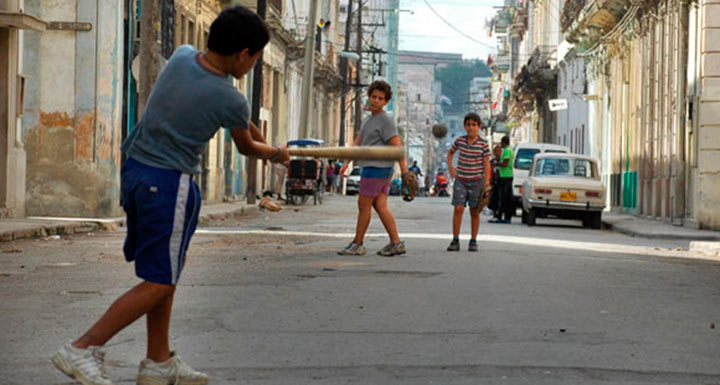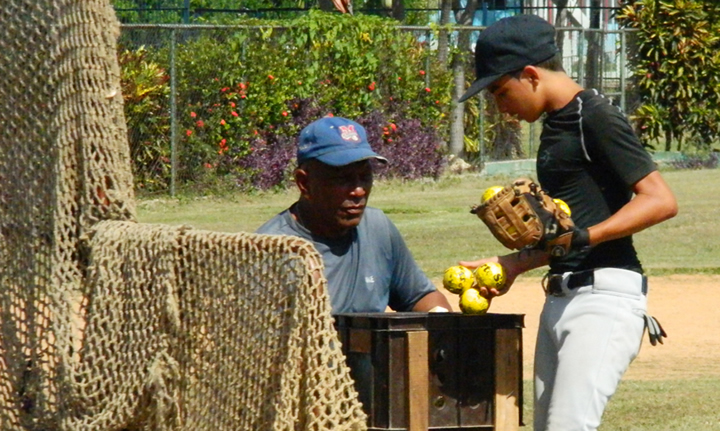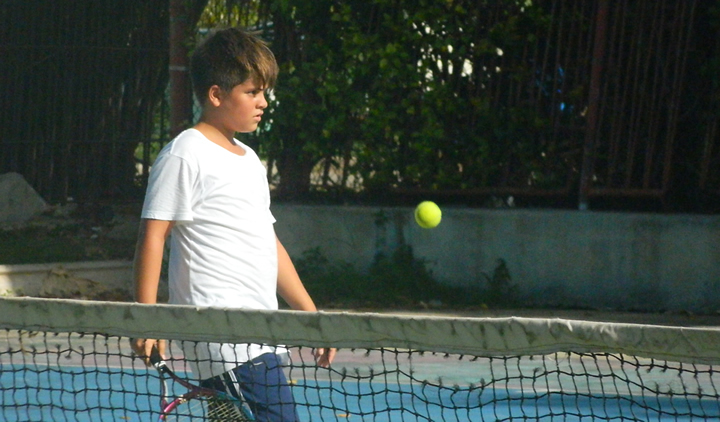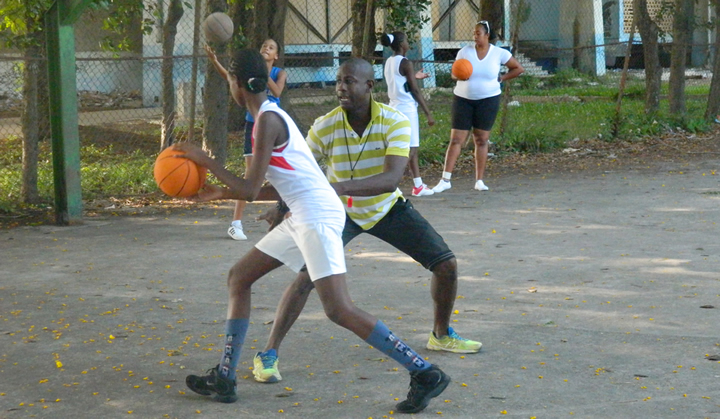
Families sustain the champions’ dreams
HAVANA — For decades, the sports pyramid in Cuba stood on the massive base of a state policy that supplied trainers, fields, equipment and a broad system of competitions for all the children who dreamed of being champions.
However, the economic attrition of the past 20 years was reflected immediately on that structure. There were shortages of tools, of transportation, and the number of disciplines narrowed. Thus, lacking sponsors in the socialist concept of amateur sports, the parents had to assume a central role in the sports formation of their children.
As noted by Yulién Aguiar Quintana, coach of the Under-18 baseball team in Central Havana, “the role of the family is essential in the early years and continues to be so after the players grow up.”
Aguiar, whose players are based in the José María Pérez Sports Center (CD), better known as “El Pontón,” said that the figure of the parents achieves vital importance when dealing with the scant resources available to the instructors.
The truth, out loud
From a dual experience as the father of athletes and former official of the INDER [National Institute for Sports, Physical Education and Recreation], Armando Rivera argues that, in the present circumstances, the country cannot guarantee the most elementary means to keep sports on their base.
“I first became aware of that as a director, because I seldom could supply the lower categories with equipment,” he says. “Later, I became aware as a father, because my two sons play baseball and began to do so in the mid-1990s.”
Everyone — coaches, parents, officials and students — agree that the supply of sports equipment is very limited. This is not a new phenomenon, but it’s made more acute because of the high prices at the hard-currency stores, where many go to buy the equipment.
“That’s true, the INDER supplies the teacher and the training field, but the rest is up to the parents,” says Carlos Oramas, who, for six years, followed his son to all the competitions, practice sessions and disillusionment of the minor divisions.
“During that time [the INDER] gave nothing to the teams: uniforms, spikes, gloves, not even transportation to the games. We obtained or bought all that,” he said.
The situation does not change much when a child is selected to the Schools for Sports Initiation (EIDE), explains Beatriz Luzardo, Armando’s wife.
“To the normal exigencies of the scholarship are added the exigencies of the sport,” she says. “Because the training increases, more money is needed to buy uniforms and shoes. To form high-performance athletes costs money and that’s the responsibility of the parents.”
Other variations rely on support from relatives abroad, who provide some of the expensive or hard-to-get equipment. Another alternative is the crafts market, where parents can find equipment — mostly baseball-related — of good quality and more affordable than at the state-run stores.
However, such choices don’t exist in the case of other sports disciplines and in those cases the prices are almost prohibitive.
I shall never forget the look on Yosvani Martínez’s face, when I found him watching his daughter practicing tennis. It was a morning in 2012 and the girl looked happy returning the balls tossed her way by coach Frank de la Portilla at a Sports City court.
Yosvani confirmed the seriousness of the problem. Roxana’s racquet was a gift from a friend (an ordinary tennis racquet costs more than 100 dollars at a Havana store) but the father had to pay for the shoes.
Frank de la Portilla told me about the impossibility of issuing an open call for new students, because “a child who wants to practice here must come with his own racquet. We can’t afford to give him one.”
The experience repeats itself, not only in Havana but also in Melena del Sur and in the plains of Mayabeque. The truth is that, without another source of income, parents and friends have to assume the role of investors in sports, a risky practice that doesn’t always deliver the expected results.
The family as a buttress
“If the parents didn’t have the presence in baseball that they now have, all this moving around would be impossible,” said Aguiar, moments before his team left to play in the provincial championship in Havana. Nevertheless, he said, the parents enjoy their participation and encourage the youngsters to dream.
Carlos Oramas and Armando Rivera feel the same way. Both played baseball in their youth and later returned to the stadiums to support their sons from the stands.
“There were times when I stopped working and dedicated myself only to baseball, to travel with the team to the few matches they played during the year,” says Oramas, smiling.
Armando and Beatriz remember the many trips to the provinces with their two sons, the anecdotes during the games, their efforts so that Armandito and Adrián would lack for nothing at the EIDE, the contributions from friends and relatives, everything they did to support their sons’ desire to play baseball.
When young children are involved, the most faithful fans are the parents, who follow their “stars” everywhere, accompanying their children tirelessly.
“We constitute another team, the support team,” Armando and Beatriz say. “One weekend in Villa Clara province, another in Cienfuegos — because, after all, they’re still children and we don’t want to leave them alone.”
The result of an investment
Not all expectations can be met in sports. Other aspects must be dealt with: the right physique, the proper training, perseverance, talent, the family.
That is why it’s not unusual for many to abandon their journey in midway, when it becomes evident that their future is not on the sports field, or when the support — institutional or familal — cannot continue to support their dream.
For Carlitos, the baseball saga ended when he entered junior high school. His first coaches no longer were in Cuba, either because of other duties or because they had emigrated. The new team director had little time for him (because of his other duties in the INDER) and many times Carlito’s parents took over the practice games.
“For almost six years, Carlitos came by my shop after school, changed clothes and went to practice,” says Oramas, the father. “Later, his mother and I went to pick him up because almost always he finished after 6 p.m. When things began to deteriorate, he told me he was quitting; it was too big a sacrifice for zero results.”
“I am a realist,” Oramas continues. “My son is not the best athlete and doesn’t have a physique impressive enough to be made into an athlete. Now he’s in seventh grade and wants to become a doctor.”
“I would have preferred that [Carlitos] stayed in baseball,” the father confides. “Even if he never became a professional player, he was in a quiet space, good for sports and education, which are critical at that age. And because he enjoyed it. But we could no longer put up with the conditions and dropped it.”
The story of Armandito and Adrián was different. The years of training and devotion were fruitful: both pitch today in professional teams in the United States, after participating for more than 10 years in national events in Cuba.
Armandito, the older son, signed up by the Chicago Cubs, was National Series champion in 2010 with the Industriales team, and University World Champion in a team that included Yoennis Céspedes and José Dariel Abreu.
Adrián — now with the Dodgers — did not pitch in the National Series.
“I was in Venezuela, on a mission, when I received the call from the Dominican Republic,” his father says. “At home, he never talked about professional ball or the Big Leagues as a goal, but that was his decision and I respect it. I am proud of them as players, because they followed their vocation and succeeded in something they love.”
In Melena del Sur, Rivera almost daily receives news about his sons through the most dissimilar channels: e-mails, phone calls, updated statistics, commentaries from friends. To him, it is a way to continue to support them, and he takes advantage of any means to counsel them, monitor their training and their state of mind.
“What you do never seems sufficient and you always try to help them further because, no matter what their age, the family is an irreplaceable buttress for a player,” the father says.
Sports in Cuba today would be impossible without the parents. It is they who keep the children’s dreams alive as best they can, betting on an unpredictable career. Everything is based on building a future. After a while, some begin to pay for tutoring and language courses for their children; others continue to buy spikes.





